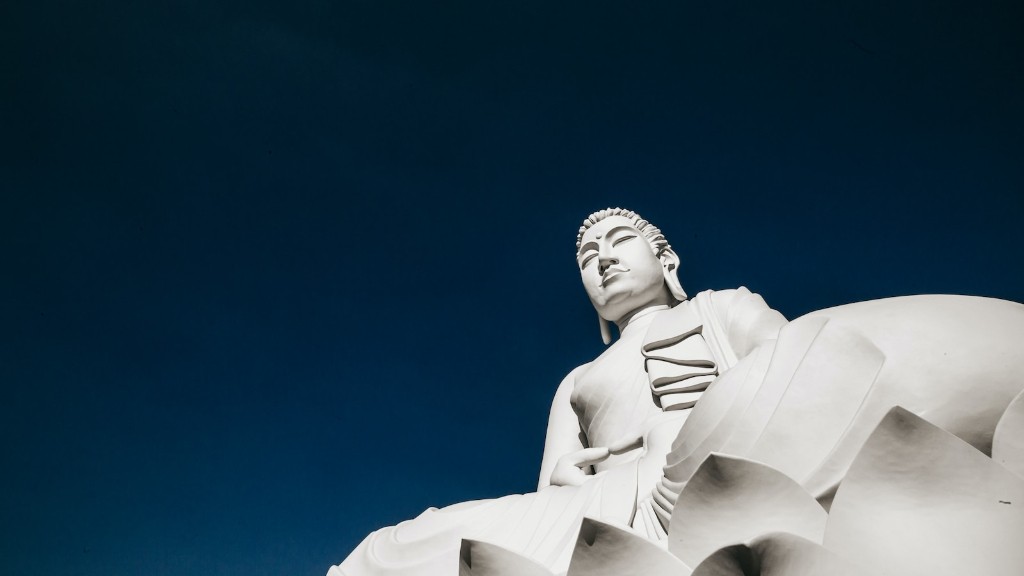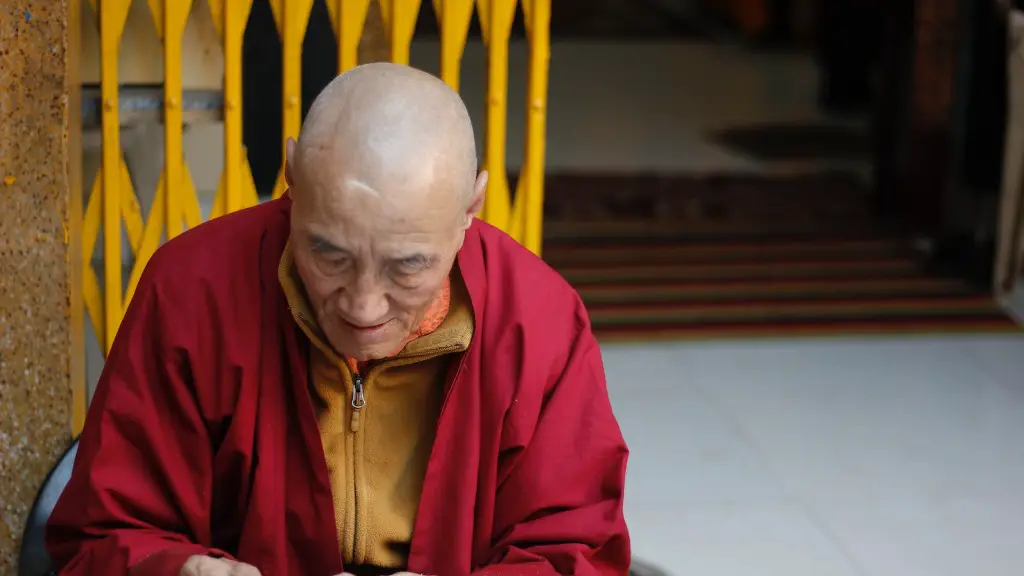Reincarnation is an integral part of the Hindu belief system, as it forms the framework for understanding life, death and rebirth. According to Hinduism, reincarnation is the process of rebirth wherein a person’s soul is reborn into a new body after death. It is believed that each soul transmigrates through different bodies and lifetimes, until the soul attains moksha or liberation from the cycle of rebirth.
At the core of reincarnation is the concept of karma, which relates to cause and effect. According to karma, a person’s actions determine the quality of his or her future life. Thus, if a person commits evil acts in one life, he or she is likely to be reborn into a lower form. On the other hand, if a person leads a good life in the present, he or she is likely to be born into a higher form in the next life.
The concept of reincarnation is based on the teachings of the Vedic scriptures, which are one of the oldest and most sacred texts of Hinduism. The Vedic scriptures teach that the soul is indestructible and eternal and is shared by all living things. The scriptures state that the soul is constantly cycling through lives in many different forms, and that it can become trapped in the cycle of rebirth. They also teach that the soul can be liberated from this cycle, or moksha, through spiritual self-realization and enlightenment.
Many people believe that reincarnation is true in Hinduism, because of the many cases reported where a person seems to have memories of past lives. Although some of these memories could be attributed to false memories or coincidences, there have been cases where psychological research has been conducted to verify the past life memories of certain individuals. As such, these kinds of evidence provide strong support for the belief in reincarnation.
In addition, a number of Hindu philosophers have also developed theories on the concept of reincarnation. For example, the Hindu philosopher Adi Shankara believed that all beings contain the same divine essence, and that they are all part of the same eternal soul. He also believed that, upon death, the soul is reborn into a new body, either in the same or different form.
While some Hinduists may be convinced of the existence of reincarnation, there are also those who are skeptical of the phenomenon. Skeptics point out that, unlike scientific theories which can be tested and proven, reincarnation is impossible to observe. As such, they argue that it is impossible to determine whether reincarnation is true or false.
Different Samskaras
In Hinduism, the samskaras are the obligatory rites of passage that mark important steps in a person’s life, such as birth, marriage, and death. During these rituals, the individual is believed to be reborn, or ‘reincarnated’. As part of the samskaras, the individual is given a new name, which is believed to reflect the individual’s spiritual essence.
These rituals are seen as crucial for the progression of the soul in its journey towards spiritual liberation. It is believed that, when an individual undergoes the samskaras, he or she is prepared for possible reincarnation by developing the necessary qualities and spiritual growth.
The Effects of Reincarnation
In the Hindu religion, reincarnation is thought to have a powerful effect on the individual’s quality of life. Hindus believe that the quality of a person’s next life is determined by their actions in the current one. As such, Buddhism encourages its followers to live an ethical life and cultivate virtuous qualities as a way of ensuring a favorable rebirth in the future.
Furthermore, reincarnation is believed to be a source of moral motivation and inspiration to live a spiritually meaningful life. This is because the individual is believed to be accountable for their actions throughout the cycle of reincarnation, and is considered responsible for their actions in their past life as well.
Evidence For or Against Reincarnation
The existence of reincarnation is a highly contested topic. While some may accept it as an immutable fact, others may be strongly skeptical of its veracity. In both cases, there is a large body of evidence for or against the phenomenon.
For instance, some have highlighted cases of young children who have reported past life memories, as evidence for reincarnation. On the other hand, some skeptics have argued that these memories could have originated from false memories that have been implanted in the child’s mind over time.
Similarly, many adherents of reincarnation have cited the ancient Vedic texts, as well as the teachings of various Hindu philosophers, as evidence for their beliefs. On the other hand, skeptics have argued that such sources are unreliable and cannot be used substantiate the belief in reincarnation. As such, the debate is ongoing and undecided.
Reincarnation and Karma
In Hinduism, reincarnation is an integral part of the cycle of karma. The cycle of karma is seen as the cause and effect relationship between a person’s thoughts, words, and deeds, and how those affect the quality of their future lives. According to the concept of karma, a person’s good and bad deeds determine the quality of his or her next life.
Moreover, Hindus believe that, through the cycle of karma, a person can achieve liberation from the cycle of reincarnation. This is because, through spiritual development, a person can become aware of the fact that his or her identity is not bound to the body-mind complex, and that he or she is an eternal being whose soul is indestructible and cannot be bound by time and space.
Therefore, it is believed that the cycle of reincarnation can be transcended by understanding and accepting karmic laws, and by developing spiritual awareness.
Karma and Moksha
For Hindus, karma and reincarnation are closely interlinked. The doctrine of karma states that a person’s actions will determine their future, and that this continual cycle can be broken through moksha, or liberation. Moksha is achieved when a person has freed themselves from the ignorance that binds them to the cycle of birth, death and rebirth, and has attained spiritual perfection.
The concept of moksha is closely related to the concept of karma, in that individuals must cultivate positive qualities and perform beneficial actions in order to achieve liberation. This is believed to be possible by focusing on the development of the individual’s spiritual practice and by understanding the principles of karma and reincarnation.
The Significance of Reincarnation
Reincarnation is a fundamental tenet of the Hindu religion, and plays an important role in shaping one’s worldview. For Hindus, reincarnation provides a spiritual framework for understanding the purpose of life and how to attain happiness, peace and liberation. As such, the concept of reincarnation serves as a source of ethical motivation, and provides individuals with the opportunity to gain insights and understanding about past lives, current lifestyles and possible future lives.
Furthermore, reincarnation is seen as a way of providing justice to individuals. In cases where people have been wronged, it is believed that their actions will be recognized and accounted for in future lives. As such, the belief in reincarnation serves as an assurance that justice will be done, and that individuals will eventually receive the outcome that their actions have earned in the past.
Conclusion
Reincarnation is an important belief in the Hindu faith, and is closely tied to the concept of karma. While some may be convinced of the reality of reincarnation, there are also those who remain skeptical. Whatever views one may hold on the topic, it cannot be denied that reincarnation is a significant discussion point in the Hindu tradition, and one that continues to hold meaning and significance for many individuals.


